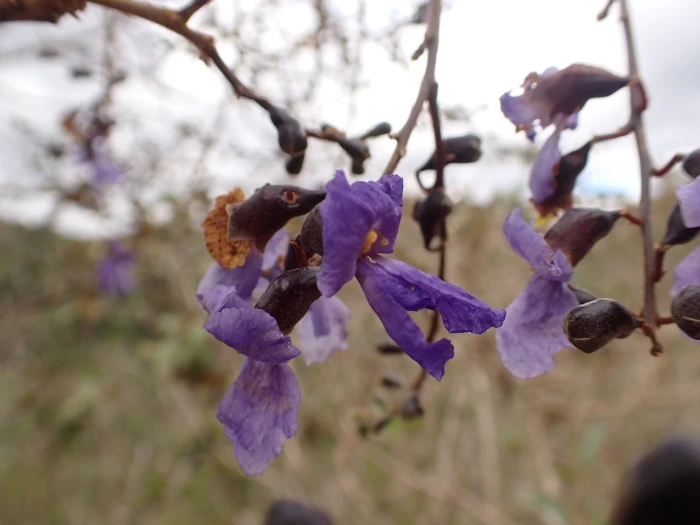Sucupira
(Bowdichia virgilioides)
Sucupira (Bowdichia virgilioides)
/
/

agujaceratops
CC BY 4.0
Image By:
agujaceratops
Recorded By:
Copyright:
CC BY 4.0
Copyright Notice:
Photo by: agujaceratops | License Type: CC BY 4.0 | License URL: http://creativecommons.org/licenses/by/4.0/ | Rights Holder: agujaceratops | Publisher: iNaturalist | Date Created: 2023-07-23T14:13-07:00 |

























Estimated Native Range
Climate Requirements for Hutchinson, Kansas
| This Plant | Your Site | Plant Suitability for Your Location | ||
|---|---|---|---|---|
| • Precipitation | 18" - 135" | 30" | Your precipitation may be insufficient for this plant. Irrigate N" / year. | Irrigate N" / year |
| • High Temp. | 75°F - 98°F | 94°F | Your summer temperatures are normal for this plant. | Excellent |
| • Low Temp. | 45°F - 73°F | 20°F | Your winter temperatures may be too cold for this plant | Too cold |
This plant should grow well at your location with about N inches per year (Y minutes per month) of irrigation.
Summary
Bowdichia virgilioides, commonly known as Sucupira or Alcornoque, is an evergreen tree native to the Cerrado and Caatinga biomes of South America, particularly in Brazil, as well as regions of Bolivia and Argentina. It is found in savannas and dry woodland areas. This species grows at a moderate rate to a typical height of 50-80 feet (15-24 meters) and can develop a dense, rounded canopy. The leaves are compound with dark green leaflets that contrast with the rough, gray bark. Sucupira produces clusters of fragrant white flowers that bloom in the spring, followed by brown seed pods.
Sucupira is valued for its hard, durable wood and is often used in reforestation projects and urban landscaping due to its tolerance of poor soils and drought conditions. It is also planted for its ornamental white flowers and as a shade tree in larger landscapes. In cultivation, it requires full sun to part shade and thrives in medium to fast-draining loam or clay soils. While it is drought-tolerant once established, it benefits from medium amounts of water during the growing season. There are no widely recognized cultivars in the horticultural trade, but its wood is used in local carpentry and for medicinal purposes in its native range. Gardeners should be aware that the tree can produce aggressive roots and should be planted with care near structures or pavement.CC BY-SA 4.0
Sucupira is valued for its hard, durable wood and is often used in reforestation projects and urban landscaping due to its tolerance of poor soils and drought conditions. It is also planted for its ornamental white flowers and as a shade tree in larger landscapes. In cultivation, it requires full sun to part shade and thrives in medium to fast-draining loam or clay soils. While it is drought-tolerant once established, it benefits from medium amounts of water during the growing season. There are no widely recognized cultivars in the horticultural trade, but its wood is used in local carpentry and for medicinal purposes in its native range. Gardeners should be aware that the tree can produce aggressive roots and should be planted with care near structures or pavement.CC BY-SA 4.0
Plant Description
- Plant Type: Tree
- Height: 50-80 feet
- Width: 20-30 feet
- Growth Rate: Moderate
- Flower Color: White
- Flowering Season: Spring
- Leaf Retention: Evergreen
Growth Requirements
- Sun: Full Sun, Part Shade
- Water: Medium
- Drainage: Medium, Fast
Common Uses
Bird Garden, Low Maintenance
Natural Habitat
Native to the Cerrado and Caatinga biomes, typically found in savannas and dry woodland areas
Other Names
Common Names: Sucupira, Cutieira, Alcornoque Sabanero, Cornoco, Omonoes, Sucupira preta
Scientific Names: Bowdichia virgilioides, Bowdichia brevipes, Bowdichia densiflora, Bowdichia ferruginea, Bowdichia floribunda, Bowdichia kuhlmannii, Bowdichia major, Bowdichia major var. fruticosa, Bowdichia parvifolia
GBIF Accepted Name: Bowdichia virgilioides